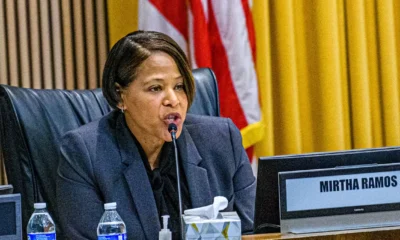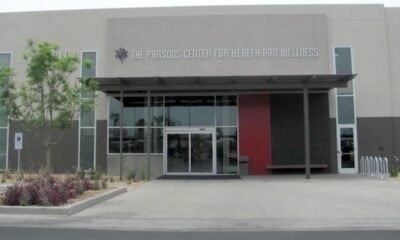Business
Tucson Police Unveil Ambitious New Plane as Key to Prop. 414 Dreams

The Tucson Police Department’s proposition for acquiring an aircraft has sparked debate as voters prepare to decide on Proposition 414 in the upcoming election on March 11. The measure proposes a half-cent increase in the city sales tax for ten years, with a significant portion allocated to public safety.
Approximately two-thirds of the revenue from Prop. 414 will go to the police and fire departments, alongside funding for the 911/311 system. The remaining third aims to support low-income residents and address homelessness in Tucson. Mail-in ballots for this proposition were distributed to voters on February 12.
Activists advocating for the homeless are raising concerns over the allocation of funds, arguing that the proposed expenses for the police overshadow the necessary support for emergency shelters and housing. They specifically criticize the plan to include a surveillance plane. Liz Casey, a volunteer with Community Care Tucson, expressed apprehension over the reliance on surveillance technology and questioned the transparency surrounding the aircraft’s intended use.
In response, TPD Chief Chad Kasmar clarified that the aircraft would not be deployed for intrusive surveillance against the public but rather to address urgent crime issues in Tucson. “We had 44 homicides last year and 170 non-fatal shootings,” Kasmar stated, highlighting the ongoing challenges faced by law enforcement.
Karina Uhlich, a member of the Tucson City Council, defended the inclusion of a plane in the police budget, noting that similar jurisdictions routinely utilize aircraft for serious criminal pursuits. She mentioned the practicality of fixed-wing planes in supporting police efforts during high-speed chases.
Currently, TPD operates three helicopters, but they are aging and nearing the end of their operational life. The proposed $16 million investment under Prop. 414 will not solely be for the airplane; it will also involve enhancements to the existing air support unit, including a new helicopter and spare parts. Chief Kasmar pointed out that this is part of a broader investment strategy, with regular maintenance intervals for essential equipment.
The effectiveness of aerial surveillance, as Chief Kasmar explained, differs based on the type of aircraft. Helicopters are suited for low-altitude tactical operations, while planes can provide extended air support, operating at higher altitudes for longer durations. This capability can assist in monitoring ongoing situations without compromising public safety.
Prop. 414’s budget details indicate a diverse allocation of approximately $800 million, surrounding both public safety enhancements and community support initiatives. Key investments include $246 million for first responders’ capital upgrades, $182 million for personnel improvements, and $140 million aimed at affordable housing projects. The funding chart highlights the city’s intent to combine public safety spending with outreach to vulnerable populations.
If voters approve Prop. 414, Tucson sales tax rates will rise from 8.7% to 9.2%, affecting various consumer purchases excluding food and medicine. The current tax framework includes multiple local levies, some of which are set to expire, necessitating further planning for renewal to continue funding community services effectively.


















